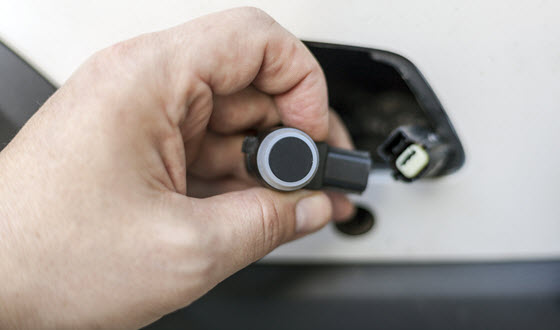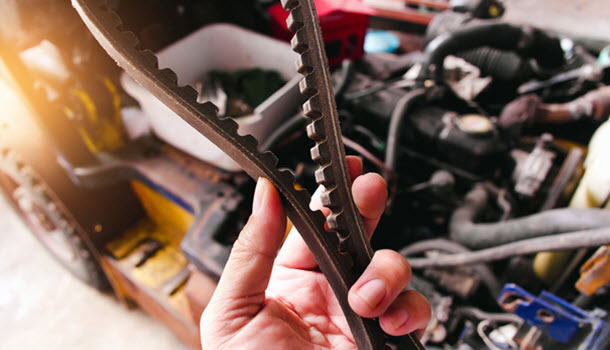Dallas’ Best Garage to Fix a Land Rover’s Parking Brake Failure
Posted on | 20 Jan 2024 By Anita Gaal
The parking brake, also known as the hand or emergency brake, is a critical safety feature in any vehicle, including your Land Rover. It is designed to immobilize the vehicle when parked, providing an additional layer of security beyond just shifting into the park or leaving the transmission in gear. Modern Land Rover models often utilize an electronic parking brake system, which replaces the traditional manual lever with a button or switch. This system engages the brake pads or shoes against the rotor or drum to prevent the vehicle from rolling when parked.
Instances of Parking Brake Failures
Reports of parking brake failures in Land Rovers have raised eyebrows and concerns among drivers and enthusiasts. Some instances involve the parking brake not engaging properly, leading to unexpected rolling of the vehicle when parked. In other cases, drivers have encountered difficulties releasing the parking brake, causing inconvenience and potential safety risks.
Factors That Lead To Parking Brake Failure
While Land Rover vehicles are renowned for their reliability and performance, certain issues might contribute to parking brake failures, potentially causing inconvenience and safety concerns for drivers. Here are several factors that can lead to parking brake failures in Land Rover vehicles:
Electronic System Anomalies
Land Rover models often employ electronic parking brake systems, replacing traditional manual levers with electronic controls. Any malfunction or glitch in the electronic components governing the parking brake system can lead to failure. There are two major electronic issues that can cause the parking brake to fail: Sensor and Control Module malfunction.
Sensors play a crucial role in detecting variables such as wheel speed, brake engagement, or system status. Faulty sensors can result in inaccurate readings, affecting the proper functioning of the parking brake. The control module that manages the electronic parking brake system might encounter malfunctions or software errors, disrupting the activation or release of the brake.
Mechanical Component Deficiencies
Even in electronic parking brake systems, mechanical components remain integral. Problems in these components can directly impact the effectiveness of the parking brake. For instance, wear and tear of brake pads or calipers over time can affect their ability to engage or disengage properly, leading to parking brake failures. The cables responsible for transmitting the electronic signal to engage the parking brake might face issues such as tension loss or physical damage, resulting in erratic functionality.
Software Glitches and Updates
The software that governs the parking brake system can encounter glitches or bugs, causing unexpected behavior. Updates to your Land Rover software might be necessary to address these issues and ensure optimal performance of the parking brake system.
Environmental and Usage Factors
External elements and driving habits can also impact the parking brake’s functionality. Exposure to harsh environmental conditions or corrosion in the parking brake components due to moisture or contaminants can hinder its operation. Aggressive or infrequent usage of the parking brake might lead to complications. Not using the parking brake regularly can cause it to seize or lose functionality.
What You Should Do
If you own a Land Rover and are worried about the parking brake system, here is what you should do to ensure safety and peace of mind. Adhering to the manufacturer’s recommended maintenance schedule is pivotal in maintaining the optimal performance of your Land Rover, including its parking brake system. Regular servicing by authorized service centers or mechanics helps detect and resolve emerging issues before they compromise the functionality of critical vehicle systems. This includes inspecting the parking brake components, ensuring proper adjustment, and addressing any wear and tear to maintain its effectiveness.
Visit Our Garage For Unparalleled Land Rover Repairs in Dallas
At Euro Automotive, we stand as your reliable and dedicated partner for all your Land Rover repair needs. With over 20 years of unwavering service to the Dallas community, our commitment to excellence in automotive care remains steadfast.

We are conveniently located in Dallas, Texas, and our state-of-the-art facility boasts six full auto service bays manned by skilled technicians adept at handling Land Rover repairs with precision and expertise. Our dedication to delivering top-notch service has earned us the trust of drivers not only in Dallas but also in Garland, Arlington, Fort Worth, and beyond.
Whether you’re facing parking brake concerns or require any other service for your Land Rover, we are your go-to repair shop. Book your appointment now and experience the difference.















